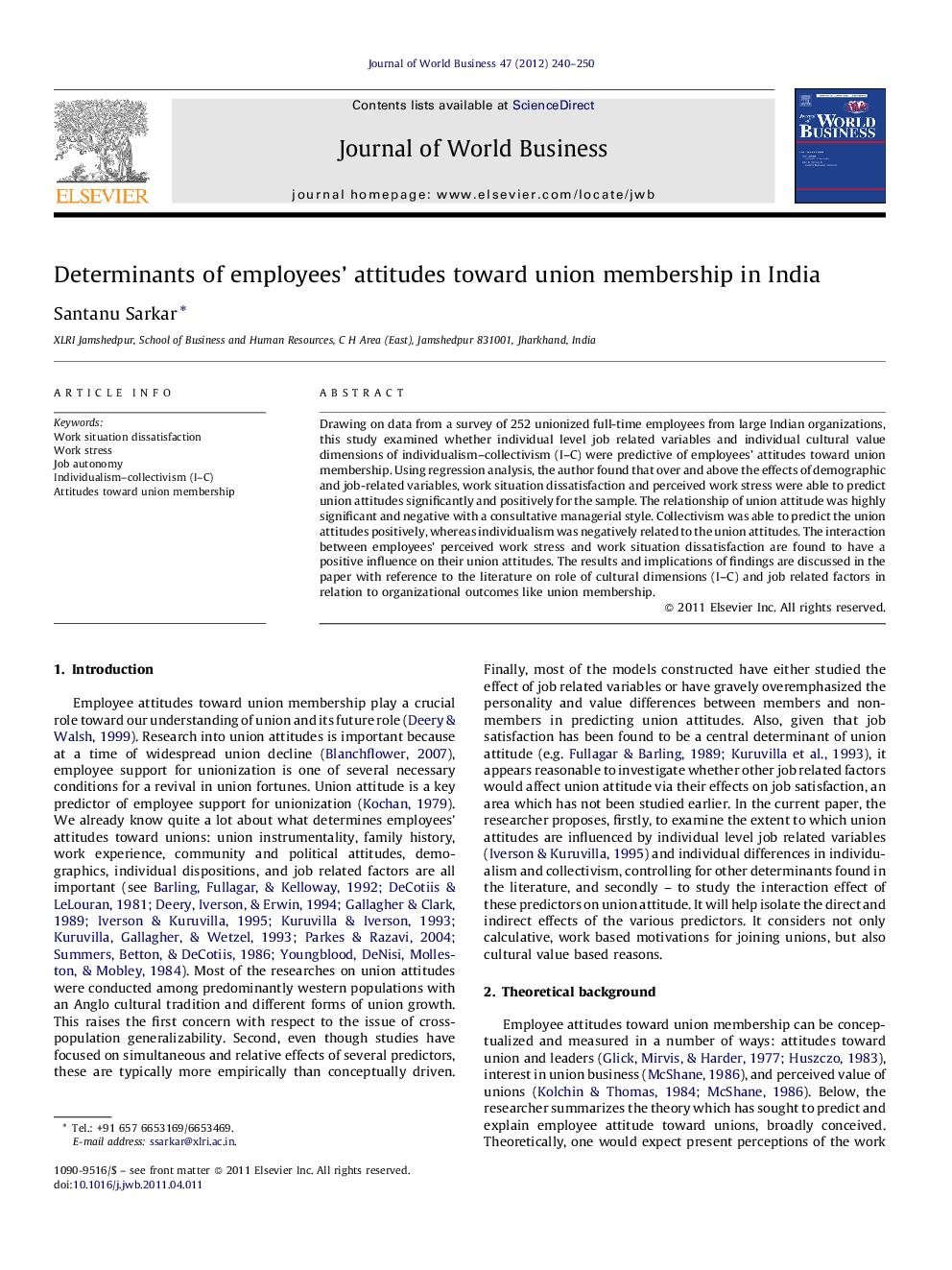| کد مقاله | کد نشریه | سال انتشار | مقاله انگلیسی | نسخه تمام متن |
|---|---|---|---|---|
| 1001602 | 937220 | 2012 | 11 صفحه PDF | دانلود رایگان |

Drawing on data from a survey of 252 unionized full-time employees from large Indian organizations, this study examined whether individual level job related variables and individual cultural value dimensions of individualism–collectivism (I–C) were predictive of employees’ attitudes toward union membership. Using regression analysis, the author found that over and above the effects of demographic and job-related variables, work situation dissatisfaction and perceived work stress were able to predict union attitudes significantly and positively for the sample. The relationship of union attitude was highly significant and negative with a consultative managerial style. Collectivism was able to predict the union attitudes positively, whereas individualism was negatively related to the union attitudes. The interaction between employees’ perceived work stress and work situation dissatisfaction are found to have a positive influence on their union attitudes. The results and implications of findings are discussed in the paper with reference to the literature on role of cultural dimensions (I–C) and job related factors in relation to organizational outcomes like union membership.
Journal: Journal of World Business - Volume 47, Issue 2, April 2012, Pages 240–250